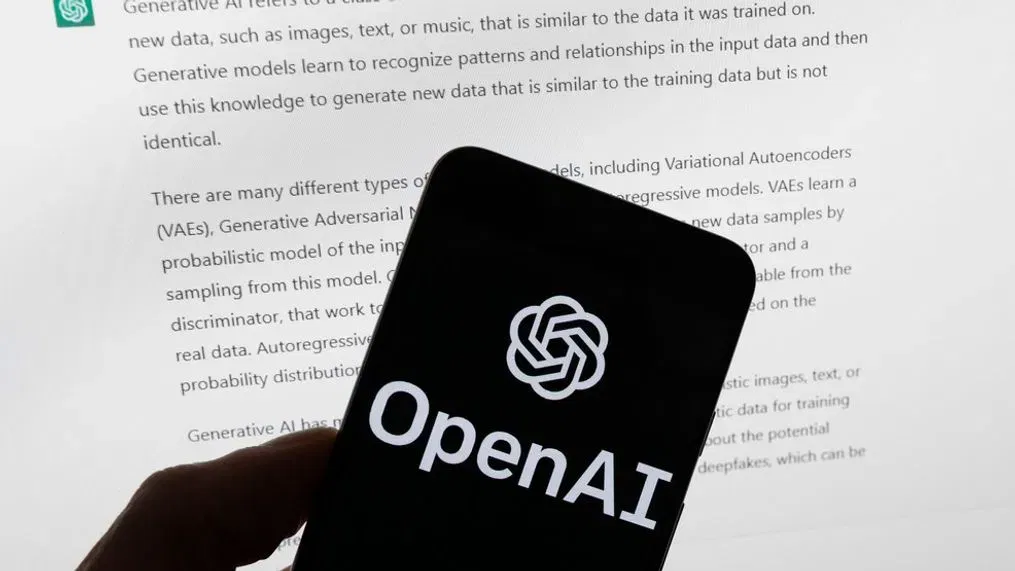
Businesses that incorporate AI into their operations need to recognize the specific security vulnerabilities linked to utilizing platforms such as OpenAI. Thus, the question arises: Is OpenAI safe to use?
OpenAI places a high priority on ensuring the safety and security of its users. This piece aims to furnish you with insights into OpenAI's data security measures, empowering you to make well-informed choices regarding AI integration within your enterprise.
Keep reading and find out more about OpenAI safety issues.
Is OpenAI Safe to Use?
Determining whether OpenAI is safe is not straightforward, as opinions on AI safety vary based on individual perspectives and criteria for assessing risk.
The safety of OpenAI depends on who you ask. Some view OpenAI as safe due to its adherence to a charter, implementation of safety protocols, and collaborative efforts to ensure its AI systems are beneficial and reliable.
However, others express concerns about OpenAI's secrecy, ambitious goals, and potential risks associated with its pursuit of artificial general intelligence (AGI). Evaluating OpenAI's safety entails considering various factors and viewpoints.
Potential Risks Associated with OpenAI

Critics raise several concerns regarding OpenAI's safety:
Privacy Issues: OpenAI's secretive nature and lack of transparency regarding research, objectives, and funding raise privacy concerns. Its significant influence in the AI domain might threaten democratic processes and accountability.
AGI Development: OpenAI's goal of achieving artificial general intelligence (AGI), capable of performing tasks akin to humans, poses existential risks if AGI deviates from human values or surpasses human intelligence.
Societal Impacts: OpenAI's products and projects, like GPT-3, DALL-E, Codex, and RoboX, could negatively affect society by displacing human workers, propagating misinformation, generating offensive content, or facilitating cyber warfare.
OpenAI’s Approach to Safety

To address the question of OpenAI's safety, the organization is actively implementing safety frameworks and ethical guidelines. OpenAI has published numerous research papers and articles detailing its safety approach, emphasizing the development of transparent, secure, and accountable AI systems.
Furthermore, OpenAI fosters transparency by making research papers and datasets publicly available for review and feedback, promoting responsible and transparent AI development.
Additionally, OpenAI researches to enhance AI system security against cyber threats and other malicious activities, striving to create transparent systems that mitigate biases and allow stakeholders to comprehend decision-making processes.
Why Does OpenAI Data Security Matter?

In today's tech-driven environment, businesses of all sizes, from startups to multinational corporations, are eager to harness the potential of AI to stay competitive in the rapidly evolving market.
However, enterprises, in particular, must exercise caution when integrating OpenAI into their technological infrastructure without conducting a thorough risk assessment. Such an evaluation serves several essential purposes:
1. Preserve Confidentiality: Enterprises handle a plethora of sensitive data, ranging from proprietary business insights to financial information and personally identifiable information (PII) of customers and employees. Implementing measures to mitigate the risk of data exposure is crucial for maintaining stringent confidentiality protocols.
2. Ensuring Regulatory Compliance: Various industries operate within the confines of stringent data protection regulations such as Europe's General Data Protection Regulation (GDPR) or California's Consumer Privacy Act (CCPA). Understanding how OpenAI aligns with these regulatory frameworks is imperative for enterprises to uphold compliance and avoid potential legal and financial repercussions.
3. Building Trust: In the contemporary digital landscape, data security plays a pivotal role in shaping an enterprise's reputation. Enterprises contemplating the integration of OpenAI into their technological framework must grasp the specific data security risks involved to preserve stakeholder trust and confidence.
Conclusion on Is OpenAI Safe
In summary, OpenAI is an organization committed to exploring the frontiers of artificial intelligence while prioritizing safety. Nevertheless, the pursuit of artificial general intelligence (AGI) by OpenAI carries notable risks for society, both in the short and long term.
It's essential to acknowledge that alongside groundbreaking AI tools like Nightcafe, Midjourney, ChatGPT, etc., there exist inherent risks and considerations in their development and deployment.
Overall, OpenAI's strides in advancing AI technology are commendable, accompanied by efforts to address safety concerns. However, ongoing vigilance and efforts to mitigate potential risks associated with this potent technology remain imperative.

